Sudan stands on the brink of another national schism
With tens of thousands dead and millions displaced, one of Africa’s most severe outbreaks of sectarian violence is poised to take a dramatic turn for the worse

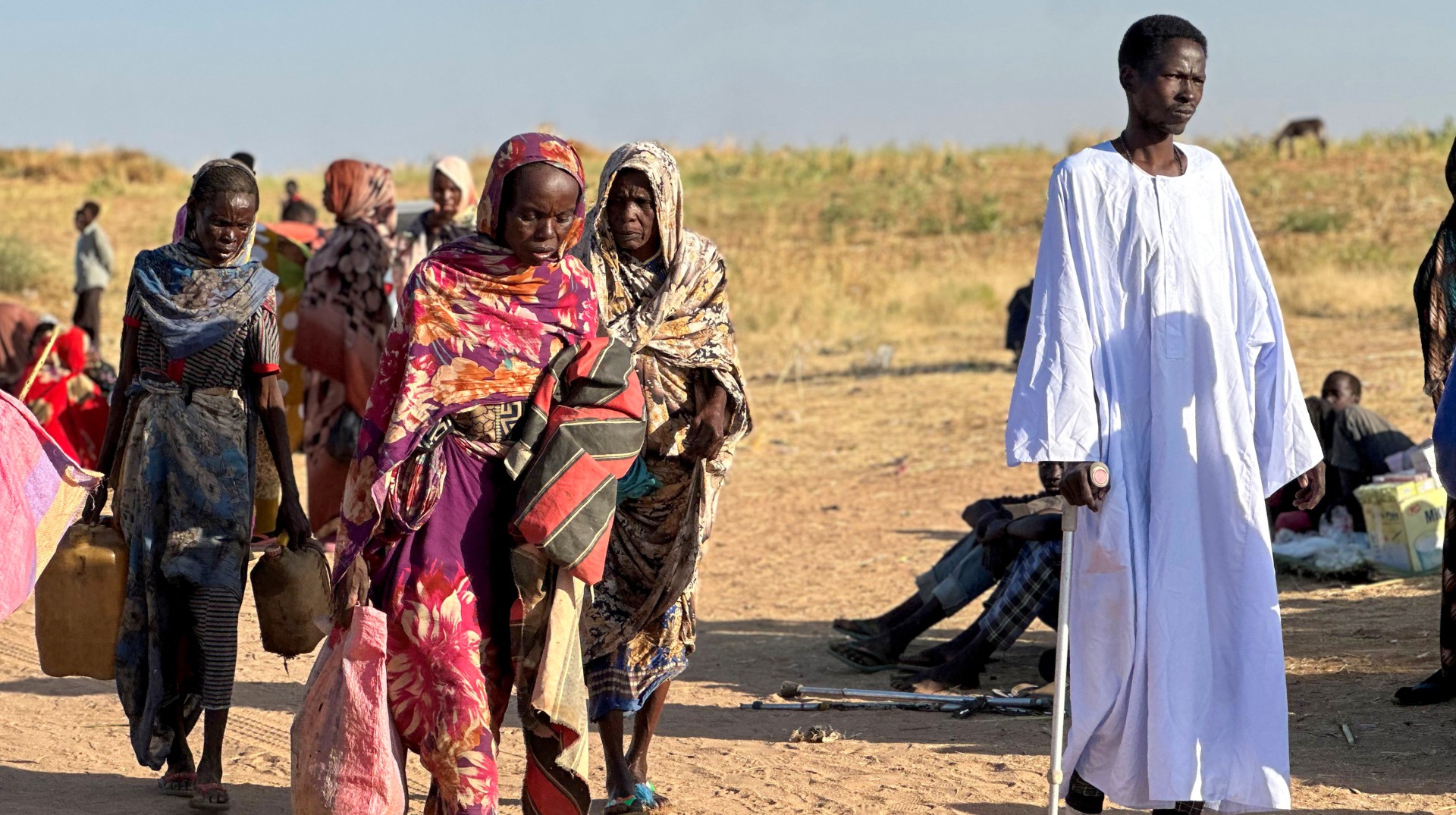
A free daily email with the biggest news stories of the day – and the best features from TheWeek.com
You are now subscribed
Your newsletter sign-up was successful
The brutal civil war that has ravaged the East African nation of Sudan for the past two years took a dark and alarming turn this week. The paramilitary Rapid Support Forces fighting against the Sudanese military assumed control of the North Darfur capital of el-Fasher. This capture comes as a growing chorus of international observers accuse the RSF of genocide and crimes against humanity, raising the prospect that the Sudan might once again split, similar to the succession of South Sudan in 2011.
What has happened in el-Fasher?
Approximately 1,500 civilians have been killed in el-Fasher over the past week, "all of whom were executed while fleeing the city to escape the clashes," said the Sudan Doctors Network, which tracks conflict-related violence, on X. The scale and scope of violence in el-Fasher “represents a true ethnic-based genocide,” condemning the “international and regional neglect” and lack of proportionate response, said the group. After more than 500 days of siege by RSF forces, “videos, satellite imagery and testimony from those who have managed to flee” point to the paramilitary group “pursuing a scorched earth policy in the Darfuri city,” said NPR.
Aid agencies in the region have received “credible reports of atrocities” resulting from the capture of el-Fasher, including “summary executions, attacks on civilians along escape routes, and house-to-house raids,” said Al Jazeera. The World Health Organization on Wednesday condemned the “reported killing of more than 460 patients and their companions,” as well as the “abduction of six health workers” at el-Fasher’s Saudi Maternity Hospital, the city’s “only partially functioning hospital,” the group said in a press release.
The Week
Escape your echo chamber. Get the facts behind the news, plus analysis from multiple perspectives.

Sign up for The Week's Free Newsletters
From our morning news briefing to a weekly Good News Newsletter, get the best of The Week delivered directly to your inbox.
From our morning news briefing to a weekly Good News Newsletter, get the best of The Week delivered directly to your inbox.
Following “international outrage” at allegations of war crimes and genocide in el-Fasher, RSF Gen. Mohamed Hamdan Dagalo, known commonly as Hemedti, “admitted there had been violations by his forces” and promised investigations into the acts by a “committee that has now arrived in the city,” said BBC. But observers of Sudan’s ongoing violence say Hemedti has made “similar promises” in response to past accusations of atrocities carried out by his forces. Those promises “were not fulfilled.”
Could Sudan see another split?
High on many Sudanese observers’ lists of concern is the possibility that the capture of el-Fasher and the Darfur region at large could be the start of a national schism akin to South Sudan’s 2011 declaration of independence and establishment as a separate nation. Assuming control of el-Fasher is a “significant victory for the RSF that could hasten a physical split of the country,” CNN said.
The RSF is now able to “consolidate its control” in the region that the group has chosen as its “base for a parallel government.” RSF forces now oversee “all five state capitals in the Darfur region,” said Foundation for Defense of Democracies, “effectively bifurcating Sudan.” The total RSF control of Darfur points to “dangerous and worrying consequences in the future in terms of partition,” said U.S. Senior Advisor for Arab and African Affairs Massad Boulos at Reuters.
The consolidation of paramilitary control of Darfur leaves the Sudanese army “entrenched along the Nile and Red Sea in the north, east and center,” while the RSF is left dominating the western plains, AFP said. “This is the moment many feared would result in a split,” said Alan Boswell, the project director for the Horn of Africa at the International Crisis Group, to AFP.
A free daily email with the biggest news stories of the day – and the best features from TheWeek.com
“Whether or not that scenario plays out, Sudan is now de facto partitioned,” Boswell said. “The longer this war drags on, this division will likely only grow more concrete and harder to unwind.”
Rafi Schwartz has worked as a politics writer at The Week since 2022, where he covers elections, Congress and the White House. He was previously a contributing writer with Mic focusing largely on politics, a senior writer with Splinter News, a staff writer for Fusion's news lab, and the managing editor of Heeb Magazine, a Jewish life and culture publication. Rafi's work has appeared in Rolling Stone, GOOD and The Forward, among others.
-
 Political cartoons for February 16
Political cartoons for February 16Cartoons Monday’s political cartoons include President's Day, a valentine from the Epstein files, and more
-
 Regent Hong Kong: a tranquil haven with a prime waterfront spot
Regent Hong Kong: a tranquil haven with a prime waterfront spotThe Week Recommends The trendy hotel recently underwent an extensive two-year revamp
-
 The problem with diagnosing profound autism
The problem with diagnosing profound autismThe Explainer Experts are reconsidering the idea of autism as a spectrum, which could impact diagnoses and policy making for the condition
-
 Why Greenland’s natural resources are nearly impossible to mine
Why Greenland’s natural resources are nearly impossible to mineThe Explainer The country’s natural landscape makes the task extremely difficult
-
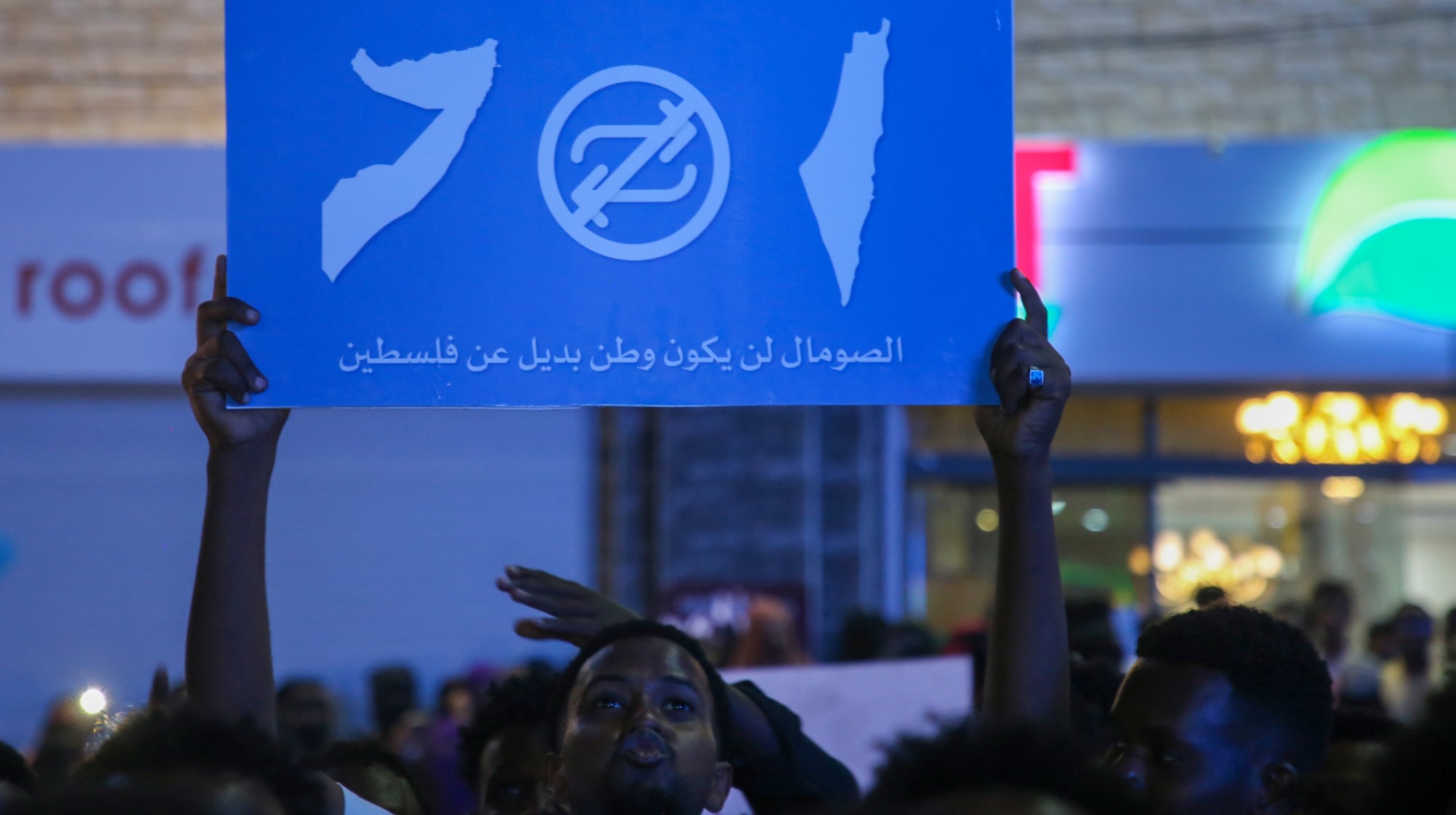 Why recognizing Somaliland is so risky for Israel
Why recognizing Somaliland is so risky for IsraelTHE EXPLAINER By wading into one of North Africa’s most fraught political schisms, the Netanyahu government risks further international isolation
-
 How Bulgaria’s government fell amid mass protests
How Bulgaria’s government fell amid mass protestsThe Explainer The country’s prime minister resigned as part of the fallout
-
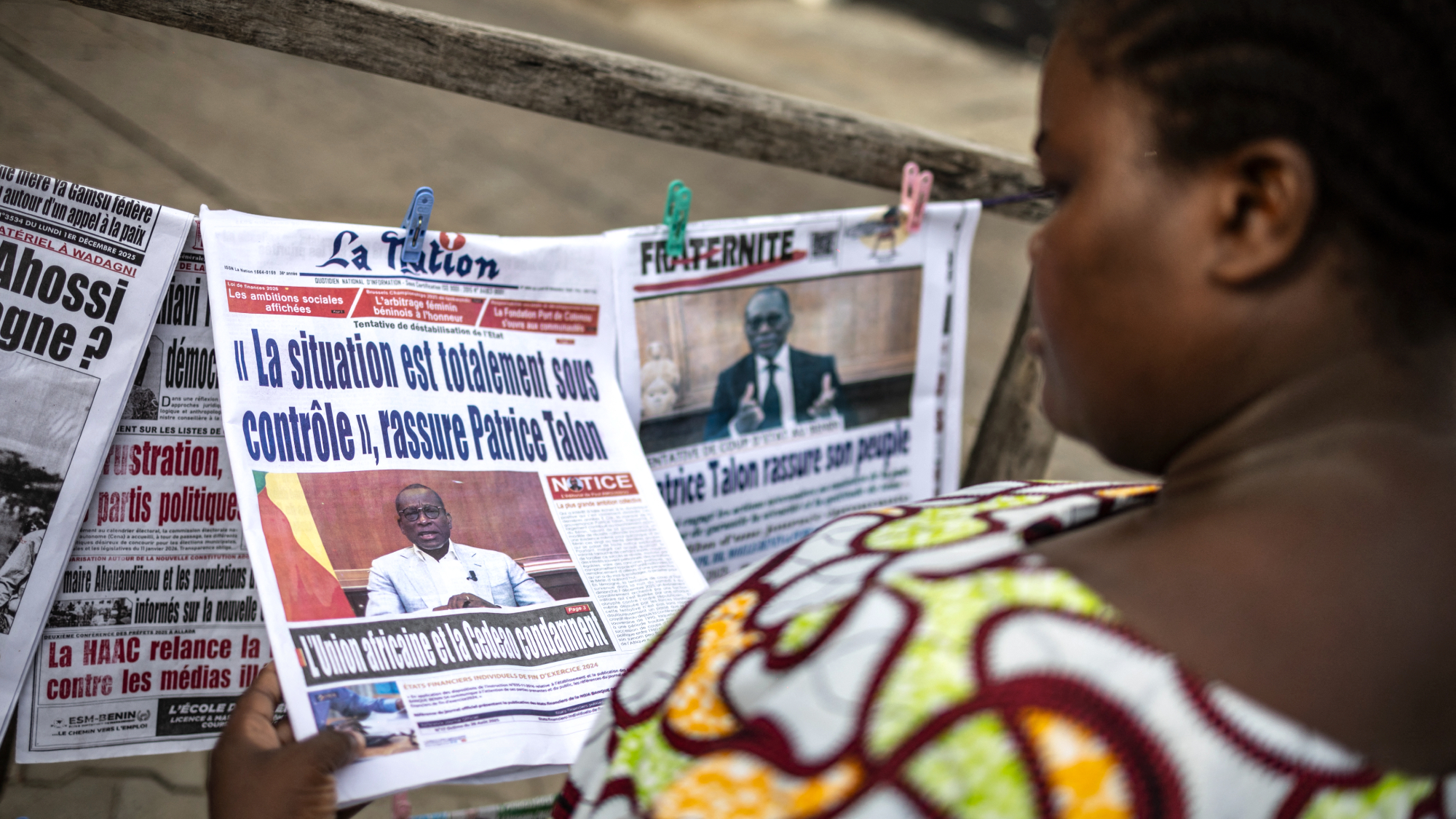 Benin thwarts coup attempt
Benin thwarts coup attemptSpeed Read President Patrice Talon condemned an attempted coup that was foiled by the West African country’s army
-
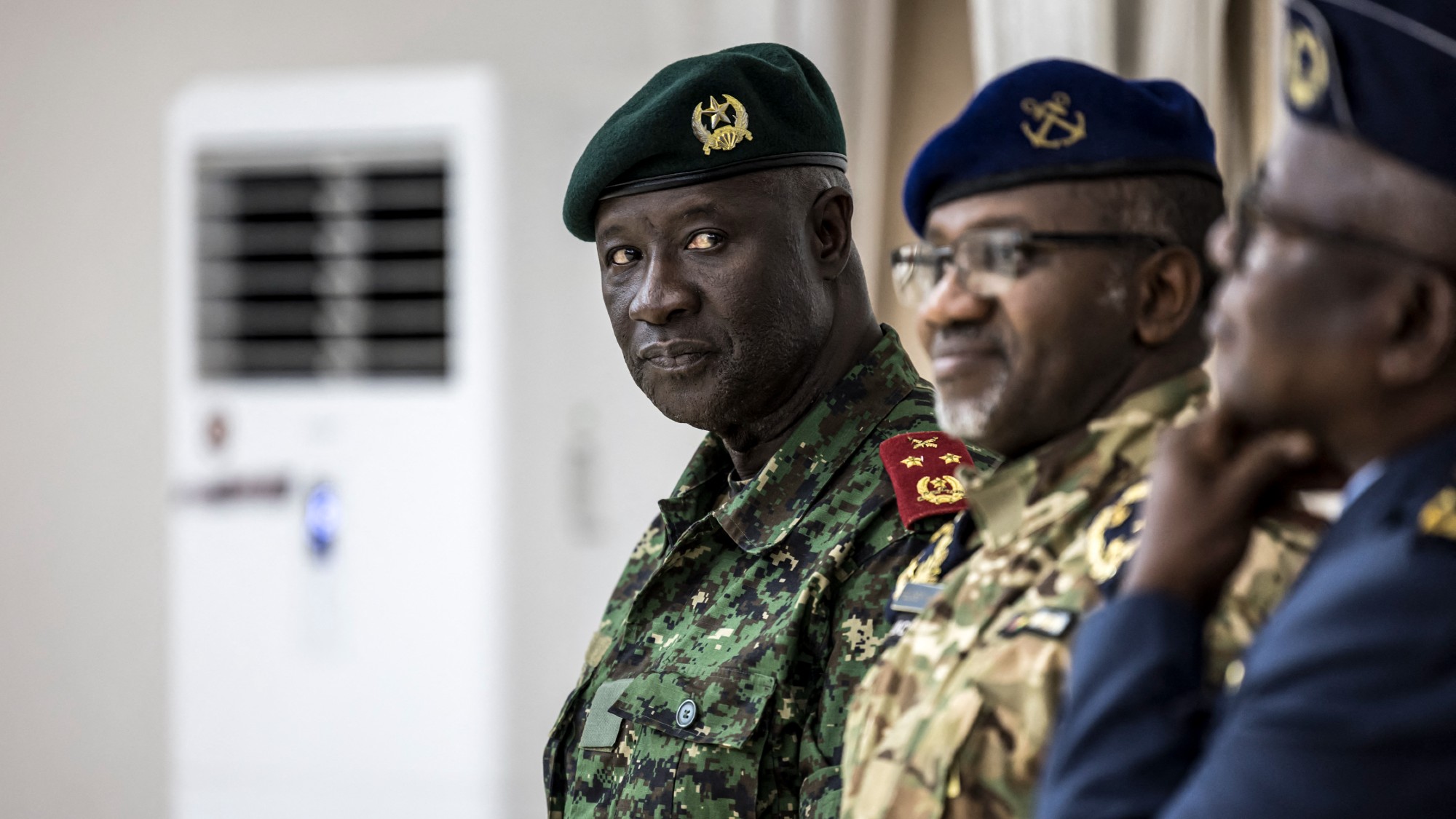 West Africa’s ‘coup cascade’
West Africa’s ‘coup cascade’The Explainer Guinea-Bissau takeover is the latest in the Sahel region, which has quietly become global epicentre of terrorism
-
 Americans traveling abroad face renewed criticism in the Trump era
Americans traveling abroad face renewed criticism in the Trump eraThe Explainer Some of Trump’s behavior has Americans being questioned
-
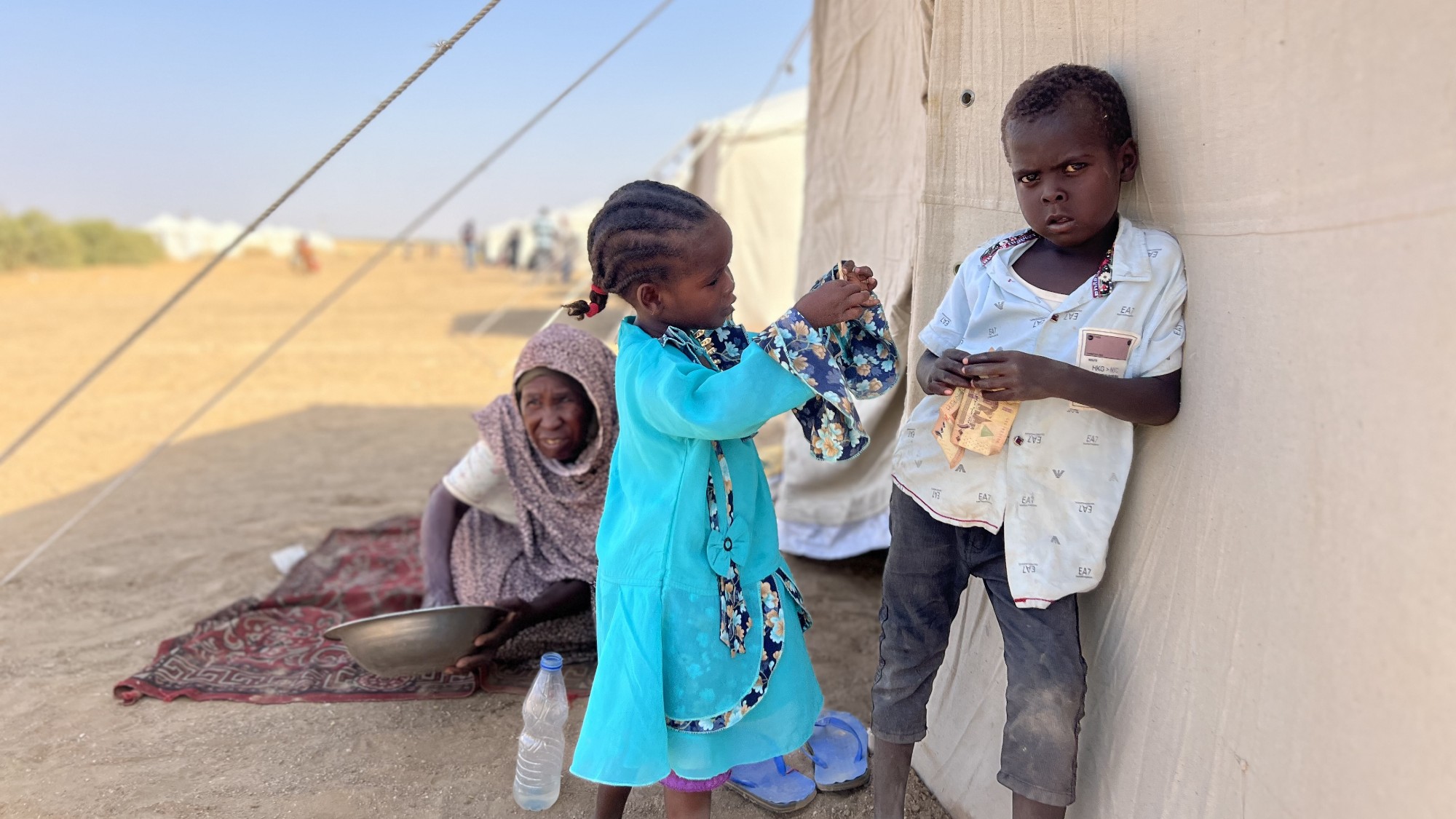 Massacre in Darfur: the world looked the other way
Massacre in Darfur: the world looked the other wayTalking Point Atrocities in El Fasher follow decades of repression of Sudan’s black African population
-
 Nigeria confused by Trump invasion threat
Nigeria confused by Trump invasion threatSpeed Read Trump has claimed the country is persecuting Christians
